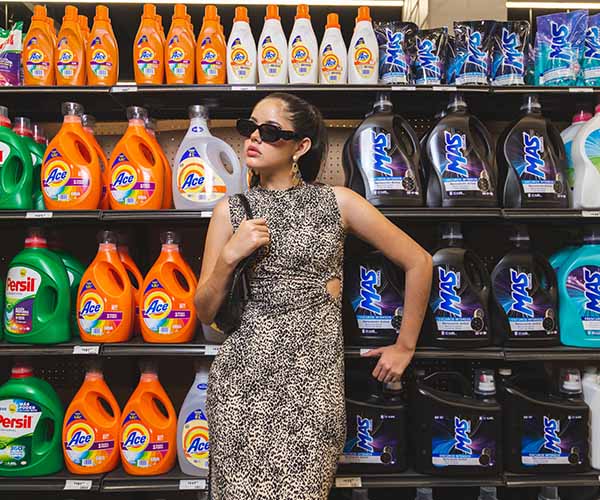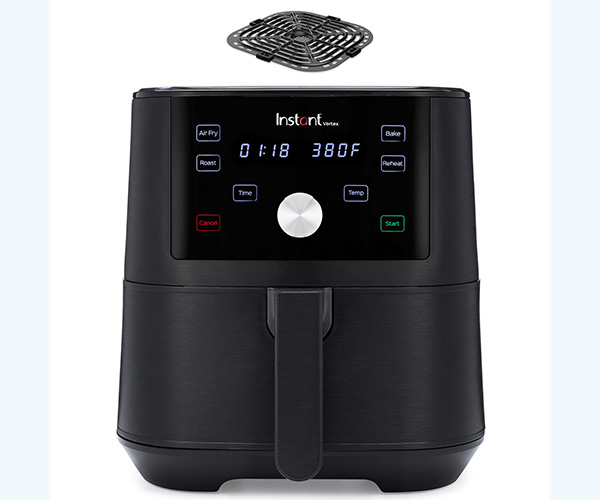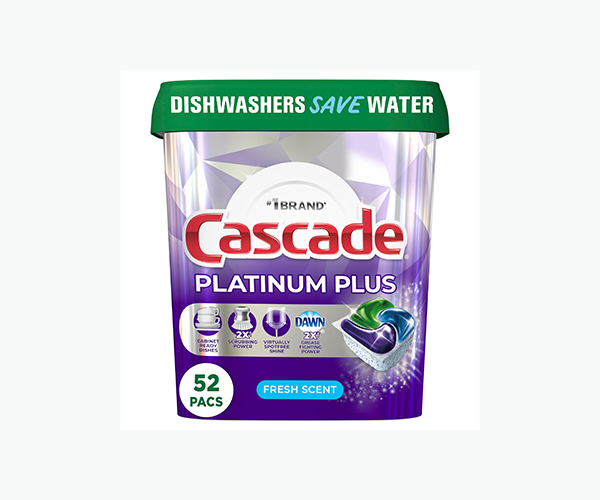Introduction of Organic Detergents
Have you ever been overwhelmed by the variety of options in front of you while standing in the detergent aisle? Yes, I most definitely have. Just last week, I saw a brightly colored, earthy-looking bottle of dishwasher detergent as I grabbed for my typical brand. It was an organic detergent that brazenly declared itself to be my dishwashing routine’s eco-friendly savior. This made me wonder: should we be switching our dishwasher detergents as well? In a world where everything is “organic,” from the food we eat to the clothes we wear, this is the new buzzword. I know this dilemma well, having alternated between conventional and organic solutions on several occasions. More than just a fad, the move toward organic products is a reflection of our increased awareness of environmental, health, and sustainability issues. We’ll go deeply into the realm of organic detergents in this extensive tutorial. We’ll examine what constitutes a “organic” detergent, contrast it with conventional alternatives, and assist you in determining whether switching is worthwhile for your household.
Search Intent
When it comes to selecting the best dishwashing detergent, buyers have a plethora of queries and worries. In order to meet our users’ actual needs and interests, it is imperative that we comprehend the search intent underlying these searches. Here’s a summary of what readers like you could be searching for:
- Effectiveness:
- How does organic detergent stack up against traditional options in terms of cleaning power?
- Are these eco-friendly alternatives capable of tackling tough stains and greasy dishes?
- Environmental Impact:
- What are the environmental benefits of switching to an organic detergent?
- How do these products contribute to sustainability and the reduction of our carbon footprint?
- Health and Safety:
- Are organic detergents safer for my family, especially for those with sensitive skin or allergies?
- What are the potential health risks associated with synthetic chemicals commonly found in traditional detergents?
- Cost and Value:
- Is the price point of organic detergents justified by their performance and benefits?
- How does the cost of the best dishwasher detergent compare between organic and conventional options?
- Ingredients and Transparency:
- What exactly goes into an organic detergent, and how transparent are companies about their ingredient lists?
- Are there any hidden chemicals or misleading claims in so-called ‘organic’ products?
- User Experience:
- What do actual users say about their experience with organic detergents?
- Are there noticeable differences in the cleanliness, scent, or feel of dishes washed with organic products?
By exploring these facets, we hope to offer a comprehensive perspective that will enable you to make the greatest decision for your family by educating and empowering you. Finding the finest dishwashing detergent is a journey that involves more than simply determining which product leaves your dishes looking their best; it also involves making decisions that fit your values and way of life.
We’ll go into more detail on each of these topics in the sections that follow, giving you the information and understanding you need to make an informed choice. Whether you’re a health-conscious customer, a parent concerned about your family’s wellbeing, or just someone looking for a better cleaning option, this guide is designed to answer your questions and quell your concerns.
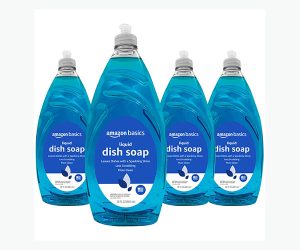
The Rise of Organic Detergents
Dishwasher detergents have a rich history, starting with chemical-laden goods and ending with eco-friendly, organic alternatives. It reflects the shifting objectives of our society as well as the increased public knowledge of environmental and health issues. Let’s examine how this changed and why the best dishwasher detergent is now associated with organic and environmentally friendly products.
- Historical Context:
- In the early days of dishwasher detergents, the focus was primarily on effectiveness. Manufacturers loaded these products with powerful chemicals to ensure sparkling clean dishes.
- However, as time progressed, the hidden costs of these chemicals began to surface. Issues like water pollution and the harmful effects of certain ingredients on human health became apparent.
- The Environmental Awakening:
- The 1970s and 1980s marked a significant turning point. The environmental movement gained momentum, shedding light on the impact of household products on the planet.
- This era saw the rise of eco-conscious consumers who demanded products that were safe for both their families and the environment.
- Shift to Organic:
- Responding to this demand, the 1990s and 2000s witnessed a gradual shift towards more natural and organic formulations in dishwasher detergents.
- Companies began experimenting with plant-based and biodegradable ingredients, reducing the reliance on harsh chemicals.
- Today’s Organic Detergents:
- Fast forward to today, and the term best dishwasher detergent often refers to products that are not only effective but also environmentally responsible.
- Modern organic detergents boast a range of features:
- Eco-Friendly Ingredients: Utilizing natural, plant-based components that are less harmful to aquatic life and do not contribute to pollution.
- Health-Conscious Formulations: Free from harsh chemicals like phosphates and chlorine, which are known to cause skin irritation and other health issues.
- Sustainable Practices: Emphasizing renewable resources and minimal environmental impact in both production and packaging.
- Consumer Awareness and Demand:
- The rise in organic detergents is also fueled by increased consumer awareness. People are more informed about the ingredients in their cleaning products and their environmental footprint.
- This awareness has led to a demand for products that align with a sustainable lifestyle, making best dishwasher detergent choices those that are kind to the planet and safe for the family.
- Regulatory Influence:
- Governments and environmental agencies have played a crucial role in this shift. Regulations limiting the use of certain harmful chemicals in detergents have steered manufacturers towards more organic formulations.
- These regulations not only protect the environment but also ensure consumer safety, further cementing the position of organic detergents in the market.
In conclusion, the popularity of organic detergents is evidence of how our knowledge of environmental responsibility and health consciousness is developing. It’s obvious that those dishwasher detergent solutions that strike a balance between cleaning effectiveness, safety, and environmental friendliness will lead the way as we continue to search for the best ones.
What Makes a Detergent ‘Organic’?
Organic is more than just a fancy label when discussing the finest dishwasher detergent. It’s a pledge to source ingredients and produce at a specific level. Knowing this can help us choose the goods we bring into our homes with more knowledge. What distinguishes organic detergents is as follows:
- Natural Ingredients: Organic detergents primarily use components derived from nature. This means:
- Plant-based surfactants: Unlike conventional detergents that often rely on petroleum-based surfactants, organic ones use plant-derived alternatives. These are not only gentle on the skin but also biodegradable.
- Essential oils for fragrance: Synthetic fragrances are replaced with natural essential oils, reducing the risk of skin irritations and allergies.
- No harsh chemicals: You won’t find phosphates, chlorine, or synthetic dyes in these detergents. These chemicals are often present in traditional detergents and can be harmful to both health and the environment.
- Eco-Friendly Manufacturing: The production process of the best dishwasher detergent that’s organic is also a key differentiator. This includes:
- Sustainable sourcing: Ingredients are often sourced from suppliers who practice sustainable farming, ensuring minimal impact on the ecosystem.
- Energy-efficient manufacturing: Many organic detergent brands prioritize reducing their carbon footprint by utilizing renewable energy sources in their manufacturing processes.
- Health and Safety Standards: Organic detergents are generally safer for both humans and pets. They are:
- Non-toxic: Free from harmful chemicals, they are safer for use around children and pets.
- Hypoallergenic: Ideal for those with sensitive skin or allergies, as they are less likely to cause reactions.
- Certifications and Labels: One way to ensure you’re getting a truly organic product is to look for certifications. These might include:
- USDA Organic: A certification that ensures the ingredients and production process meet strict government standards.
- EcoCert: An international organic certification that guarantees environmental friendliness and sustainability.
- Effectiveness: Despite being gentle and natural, the best dishwasher detergent that’s organic doesn’t compromise on cleaning power. They are:
- Highly effective: Capable of removing tough grease and stains, just like their conventional counterparts.
- Water-efficient: Often designed to work well in low-water conditions, making them suitable for modern, energy-efficient dishwashers.
In conclusion, natural ingredients, environmentally friendly production processes, stringent safety requirements, acknowledged certifications, and uncompromising cleaning efficacy are what make an organic dishwasher detergent unique. The move in our cleaning routines toward organic products is not simply a fad but a meaningful decision for a healthier house and planet as we grow more environmentally conscious.
Comparing Organic vs. Traditional Detergents
When it comes to choosing the best dishwasher detergent, the debate often centers around the efficacy and impact of organic versus traditional options. Let’s break down the key differences:
- Effectiveness in Cleaning Dishes:
- Traditional Detergents: Known for their powerful cleaning abilities, traditional detergents often contain strong chemicals like phosphates and chlorine. These ingredients are effective in removing tough stains and food residues.
- Organic Detergents: Organic options, on the other hand, rely on natural ingredients, such as plant-based enzymes and surfactants. While they are perceived as gentler, many modern organic formulations are proving to be just as effective as their traditional counterparts in cleaning dishes.
- Environmental Impact and Sustainability:
- Traditional Detergents: The environmental impact of traditional detergents is a growing concern. Ingredients like phosphates can lead to eutrophication in water bodies, harming aquatic life. The production process of these chemicals also contributes to environmental degradation.
- Organic Detergents: Organic detergents are often lauded for their eco-friendliness. They are typically biodegradable and made from renewable resources, reducing the ecological footprint. By choosing organic, consumers contribute to a more sustainable future.
- Health and Safety Considerations:
- Traditional Detergents: The harsh chemicals in traditional detergents can pose health risks. Prolonged exposure to these chemicals can lead to skin irritations and other health issues. The residue left on dishes can also be a concern, especially for families with young children.
- Organic Detergents: Organic detergents are generally considered safer for health. They are free from toxic chemicals and are less likely to cause skin irritations. Their natural composition also means fewer worries about harmful residues on your dishes.
In summary, conventional detergents have long been the preferred option due to their superior cleaning capabilities; however, organic detergents are quickly gaining ground. They not only provide efficient cleaning solutions, but they also take care of health and environmental issues. Weighing these considerations can help us find the finest dishwasher detergent for our homes, so be sure to make an informed choice that fits our requirements and ideals.
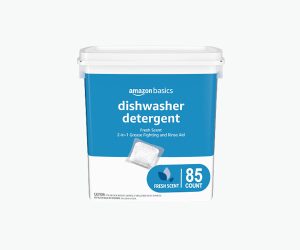
Top Organic Dishwasher Detergents in the Market
Investigating the leading products in the organic market is crucial while looking for the best dishwasher detergent. These solutions promise to clean your dishes efficiently while also providing an environmentally responsible way to do your everyday chores. Let’s examine some of the top organic dishwasher detergents, rating them according to user feedback, pricing, ingredient transparency, cleaning efficacy, and environmental friendliness.
- Seventh Generation Free & Clear Dishwasher Detergent
- Cleaning Power: Known for its impressive grease-cutting capabilities, this detergent leaves dishes sparkling without harsh chemicals.
- Eco-Friendliness: With a formula free from fragrances, dyes, and chlorine bleach, it’s a win for the environment.
- Ingredient Transparency: The brand prides itself on full disclosure of its plant-based ingredients.
- Price: Competitively priced, it offers great value for an organic option.
- User Reviews: Users rave about its effectiveness, especially for those with sensitive skin or allergies.
- Ecover Zero Automatic Dishwashing Tablets
- Cleaning Power: These tablets pack a punch, tackling stubborn food residues with ease.
- Eco-Friendliness: Ecover’s biodegradable and phosphate-free formula is gentle on aquatic life.
- Ingredient Transparency: The company is transparent about its mineral and plant-based ingredients.
- Price: Slightly higher priced, but justified by its environmental credentials.
- User Reviews: Highly praised for leaving dishes spotless and without streaks.
- Method Smarty Dish Plus
- Cleaning Power: This detergent boasts triple-action power to remove tough stains and leave dishes gleaming.
- Eco-Friendliness: Method’s commitment to sustainability is evident in its 100% recycled packaging.
- Ingredient Transparency: Free from harmful chemicals, it lists all ingredients clearly.
- Price: Affordable, making it an accessible option for eco-conscious consumers.
- User Reviews: Popular for its pleasant scent and effective cleaning, though some note it works best with pre-rinsed dishes.
- Better Life Natural Dishwasher Gel
- Cleaning Power: Its powerful cleaning agents work effectively against grease and baked-on foods.
- Eco-Friendliness: The detergent is biodegradable, cruelty-free, and free from synthetic fragrances.
- Ingredient Transparency: Better Life offers a clear list of its natural ingredients.
- Price: Mid-range, offering good value for its natural formulation.
- User Reviews: Users appreciate its gentle yet effective formula, especially in households with children and pets.
- Nature Clean Automatic Dishwasher Pacs
- Cleaning Power: These pacs provide a thorough clean, even in hard water conditions.
- Eco-Friendliness: Free from chlorine, phosphates, and other harsh chemicals, it’s safe for the environment.
- Ingredient Transparency: Nature Clean focuses on using renewable resources in its ingredients.
- Price: On the higher end, but reflects its commitment to natural ingredients.
- User Reviews: Favored for its hypoallergenic formula and effectiveness in removing tough stains.
In conclusion, these organic solutions stand out for their dedication to the environment and human health, in addition to their cleaning capabilities, when looking for the finest dishwashing detergent. Whether it’s their eco-friendly components, potent cleaning ability, or affordable price, each of these items offers something special. Changing to organic dishwasher detergent can be a modest but important step toward a more sustainable lifestyle as we grow more aware of our impact on the environment.
How to Choose the Best Organic Detergent for Your Home
There are a few things to consider while choosing the best dishwashing detergent for your house, particularly if you’re thinking about going organic. The selection process involves more considerations than just cleaning efficiency; it involves fitting in with your beliefs, way of life, and the particular requirements of your home. Here is a guide to assist you in making sense of the options:
- Understand Your Dishwasher Type:
- Not all detergents are suitable for every dishwasher.
- Check if the detergent is compatible with your machine’s make and model.
- Consider Water Hardness:
- Water hardness varies by region and can affect detergent performance.
- Organic detergents formulated for hard water can prevent mineral buildup.
- Evaluate Dish Types:
- Consider the types of dishes you frequently wash.
- Some organic detergents are better suited for heavier grease, while others are more gentle, ideal for delicate glassware.
- Personal Preferences:
- Fragrance: Some prefer a natural, mild scent, while others might opt for fragrance-free.
- Packaging: Eco-conscious consumers might look for recyclable or biodegradable packaging.
- Reading Labels and Certifications:
- Look for certifications like USDA Organic or EcoCert, indicating credible organic standards.
- Ingredient transparency is key. Avoid detergents with phosphates, chlorine, and synthetic fragrances.
- Performance and Efficiency:
- The primary role of any dishwasher detergent is to clean effectively.
- Look for user reviews and ratings to gauge performance.
- Eco-Friendliness:
- Assess the environmental impact.
- Opt for detergents with biodegradable ingredients and sustainable manufacturing practices.
- Price Consideration:
- Organic options might come with a higher price tag.
- Determine if the cost aligns with your budget and the value it offers.
- User Reviews and Experiences:
- Real user experiences can provide insights into the detergent’s performance and suitability.
- Look for reviews that detail long-term use and effects on dishware.
Selecting the best dishwashing detergent is more than simply a routine chore—it’s about making a wise choice that will improve both the environment and your daily life. You may choose an organic detergent that not only successfully cleans your dishes but also fits your needs and values by taking these aspects into account.
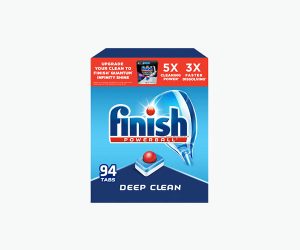
User Experiences and Testimonials
Nothing is more persuasive when it comes to selecting the best dishwasher detergent than the firsthand accounts and evaluations of actual customers. Here, we’ve included opinions from a range of people who have switched to organic detergents. Their experiences illuminated the real-world effects of this decision:
- Sarah’s Eco-Friendly Shift:
- Background: Sarah, a mother of two, is passionate about reducing her family’s environmental footprint.
- Experience: After switching to an organic detergent, she noticed her dishes were just as clean, if not cleaner, than with her previous traditional brand.
- Impact: Sarah feels more at peace knowing she’s contributing to environmental sustainability.
- Mike’s Health-Conscious Decision:
- Background: Mike, who suffers from skin sensitivities, often found dishwashing a challenge.
- Experience: Since using an organic detergent, he’s experienced fewer skin irritations.
- Impact: Mike appreciates the gentle yet effective nature of organic detergents, making them his best dishwasher detergent choice for health reasons.
- Anna’s Surprising Discovery:
- Background: Anna, a skeptic of organic products, decided to give them a try out of curiosity.
- Experience: To her surprise, the organic detergent performed excellently, removing tough stains and leaving a pleasant, non-chemical scent.
- Impact: Anna now advocates for organic detergents, citing their effectiveness and environmental benefits.
- John’s Cost-Effectiveness Analysis:
- Background: John, always looking for value for money, was hesitant about the slightly higher price of organic detergents.
- Experience: He found that the efficiency of organic detergents meant using less per wash, balancing out the cost.
- Impact: John considers organic detergents a smart investment, offering both quality cleaning and environmental responsibility.
- Emily’s Allergy Alleviation:
- Background: Emily’s children have allergies, and she’s cautious about the products used in her household.
- Experience: After switching to an organic detergent, she noticed a reduction in her children’s allergy symptoms.
- Impact: Emily values the hypoallergenic properties of organic detergents, making them her top choice for her family’s health.
These tales demonstrate the many advantages of using organic dishwasher detergents. There are several reasons to choose organic food, including cost-effectiveness, health advantages, and environmental considerations. However, the underlying theme is evident: for many people, choosing organic detergents is a conscious decision for a healthier, more sustainable lifestyle rather than just following a fad. As we investigate the top dishwasher detergent options further, these reviews provide insightful information about how our decisions will actually affect our daily lives.
DIY Organic Dishwasher Detergent Recipes
Sometimes coming up with your own solution is the most efficient way to find the best dishwasher detergent. In addition to providing the satisfaction of a handmade product, making your own organic dishwasher detergents allows you total control over the contents. Try these easy-to-follow but powerful recipes:
- Basic Baking Soda and Citrus Powder Mix:
- Ingredients:
- 1 cup of baking soda (natural cleaning agent)
- ¼ cup of citric acid (for removing tough stains)
- ¼ cup of coarse salt (to reduce hard water spots)
- 10-15 drops of essential oil (lemon or orange for a fresh scent)
- Instructions:
- Mix baking soda, citric acid, and coarse salt in a bowl.
- Add the essential oil drops and stir until well combined.
- Store in an airtight container.
- Use 1 tablespoon per dishwasher load.
- Ingredients:
- Vinegar and Essential Oil Rinse Aid:
- Ingredients:
- White vinegar (a natural rinse agent)
- 5-10 drops of your favorite essential oil
- Instructions:
- Fill the rinse aid compartment of your dishwasher with white vinegar.
- Add a few drops of essential oil.
- The vinegar will aid in rinsing and the oil provides a pleasant aroma.
- Ingredients:
- Borax-Free Detergent Tablets:
- Ingredients:
- ½ cup of washing soda (cuts through grease)
- ¼ cup of Epsom salt (mineral content improves cleaning)
- ¾ cup of powdered lemonade mix (non-sweetened for citric acid)
- Instructions:
- Combine washing soda and Epsom salt in a mixing bowl.
- Gradually add lemonade mix until the mixture begins to clump.
- Press into an ice cube tray and let dry for 24 hours.
- Store in a dry place and use one tablet per load.
- Ingredients:
These recipes are not just kind on your dishes and the environment, but they are also very effective. You may make a detergent that rivals the best dishwasher detergent available on the market by utilizing basic, natural materials. Furthermore, these do-it-yourself fixes are frequently more economical in the long run.
Keep in mind that several conditions, such as water hardness and the kind of dishes being cleaned, might affect how effective a homemade detergent is. It’s wise to start with small quantities and modify the recipes to meet your unique requirements.
In conclusion, these homemade organic dishwasher detergent recipes provide an excellent starting point for anyone, be it an eco-conscious customer or just someone eager to try something new. They may offer you the cleaning power you’re searching for in the best dishwasher detergent for your house because they’re straightforward, eco-friendly, and simple.
The Future of Dishwashing: Trends and Innovations
The dishwashing sector is about to undergo a big transformation, especially when it comes to the finest dishwasher detergent. Looking ahead, a number of developments and trends are influencing how we see and utilize dishwasher detergents. These developments prioritize user health and environmental sustainability in addition to promising increased cleaning efficiency.
- Eco-Friendly Formulations:
- The push towards greener, more sustainable products is stronger than ever. Future detergents are expected to be even more eco-friendly, with biodegradable ingredients that leave minimal environmental footprints.
- Innovations in plant-based and mineral-based ingredients are leading the charge, offering powerful cleaning without the harsh chemicals found in traditional detergents.
- Smart Dishwashing Solutions:
- The integration of technology in dishwashing is a game-changer. We’re seeing the emergence of ‘smart’ detergents that can adjust their formulation based on the load, water hardness, and level of soiling.
- This not only ensures optimal cleaning but also reduces waste, as the exact amount of detergent needed is dispensed, avoiding overuse.
- Customizable Detergents:
- Personalization is becoming key in the detergent industry. Imagine detergents that you can tailor to your specific needs – whether it’s for extra shine, hypoallergenic properties, or fragrance preferences.
- This trend is particularly exciting for those with specific dishwashing needs, ensuring that the best dishwasher detergent is the one that fits your unique requirements.
- Enhanced Efficiency and Water Conservation:
- Future detergents are being designed to work effectively in lower temperatures and with less water. This not only conserves resources but also reduces energy bills.
- The focus is on formulations that can break down tough food residues quickly and efficiently, even in eco-friendly cycles of modern dishwashers.
- Packaging Innovations:
- The shift towards sustainable packaging is rapidly gaining momentum. We’re seeing a move away from plastic to biodegradable and refillable containers, reducing plastic waste significantly.
- Innovative packaging solutions also include concentrated formulas, where a smaller amount of detergent delivers the same cleaning power, reducing packaging size and transport emissions.
- Health-Conscious Products:
- With an increasing awareness of the impact of chemicals on health, future detergents are likely to be free from harmful substances like phosphates and chlorine.
- The development of non-toxic, fragrance-free, and dye-free options caters to health-conscious consumers, ensuring safety without compromising on cleaning efficacy.
In conclusion, finding the best dishwasher detergent and improving dishwashing techniques will not only involve doing a thorough job of cleaning dishes. It’s about coming up with innovations that take into account our health, environmental, and technical obligations. These new developments and trends promise to revolutionize dishwashing in the future, making it more effective, sustainable, and customized to meet our specific needs.
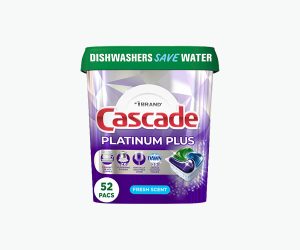
Conclusion
It’s time to evaluate what we’ve learned and ponder the consequences for our everyday lives as we draw to a close our in-depth investigation of organic detergents. It has been an eye-opening experience to go from comprehending the growth of organic products to assessing the top dishwasher detergent choices. The main conclusions are as follows:
- Health and Environmental Impact:
- Organic detergents offer a safer, more environmentally friendly alternative to traditional detergents.
- By choosing organic, you’re not only ensuring the health of your family but also contributing to the sustainability of our planet.
- Effectiveness in Cleaning:
- While there’s a perception that organic products might be less effective, our exploration has shown that the best dishwasher detergents that are organic can compete head-to-head with traditional ones in terms of cleaning power.
- Cost vs. Benefits:
- It’s undeniable that organic detergents can be more expensive. However, the long-term benefits – both health-wise and environmentally – can outweigh the initial cost.
- Personal Experiences:
- Testimonials and user experiences have highlighted noticeable differences after switching to organic detergents. Many have observed better skin health, reduced allergies, and a sense of contributing positively to environmental conservation.
- Innovation and Future Trends:
- The detergent industry is evolving, with more innovations making organic options more effective and affordable. The future looks promising for those who prefer eco-friendly cleaning solutions.
In conclusion, your own priorities and values will determine whether or not switching to organic detergents is worthwhile. Purchasing the best organic dishwasher detergent is a smart move if sustainability, health, and the environment are important to you. Recall that even a tiny change in lifestyle can have a significant impact on the health of the world.
FAQs About Best Dishwasher Detergent
1. What makes a dishwasher detergent ‘the best’?
Answer: The best dishwasher detergent effectively cleans dishes, leaving them spotless and streak-free. It should be efficient in removing tough stains and food residues, gentle on dishes, and safe for the dishwasher. Additionally, environmental friendliness, lack of harsh chemicals, and cost-effectiveness are also important factors.
2. Are eco-friendly dishwasher detergents as effective as traditional ones?
Answer: Yes, many eco-friendly dishwasher detergents are just as effective as traditional ones. They use plant-based and biodegradable ingredients that are tough on grease and stains but gentle on the environment. However, their effectiveness can vary, so it’s worth trying a few brands to find the one that works best for your needs.
3. Can I use regular dish soap in my dishwasher?
Answer: No, it’s not advisable to use regular dish soap in a dishwasher. Dish soap creates a lot of suds and foam, which can overflow and damage the dishwasher. Dishwasher detergents are specially formulated to be low-sudsing and suitable for use in dishwashers.
4. How do I choose a detergent for hard water?
Answer: For hard water, choose a detergent with water softening agents to prevent mineral buildup and ensure clean dishes. Detergents labeled as ‘hard water compatible’ or those with added rinse aids can be more effective in these conditions.
5. Are pods, powders, or liquid detergents better?
Answer: The effectiveness can vary based on the brand rather than the form. Pods offer convenience and pre-measured doses, powders are great for heavy-duty cleaning and are often more economical, and liquids can be effective for shorter cycles and lower temperatures.
6. Is it necessary to use rinse aids with dishwasher detergents?
Answer: While not always necessary, rinse aids can be beneficial, especially in areas with hard water. They help prevent water spots and film on dishes by improving the rinsing process.
7. Can dishwasher detergents cause allergies?
Answer: Yes, some dishwasher detergents contain fragrances and dyes that can cause allergic reactions in sensitive individuals. It’s advisable to choose fragrance-free and dye-free detergents if you have skin sensitivities or allergies.
8. How can I tell if a dishwasher detergent is environmentally friendly?
Answer: Look for detergents labeled as biodegradable, phosphate-free, and made from plant-based ingredients. Certifications from environmental organizations and transparent ingredient lists can also be indicators of an environmentally friendly product.

